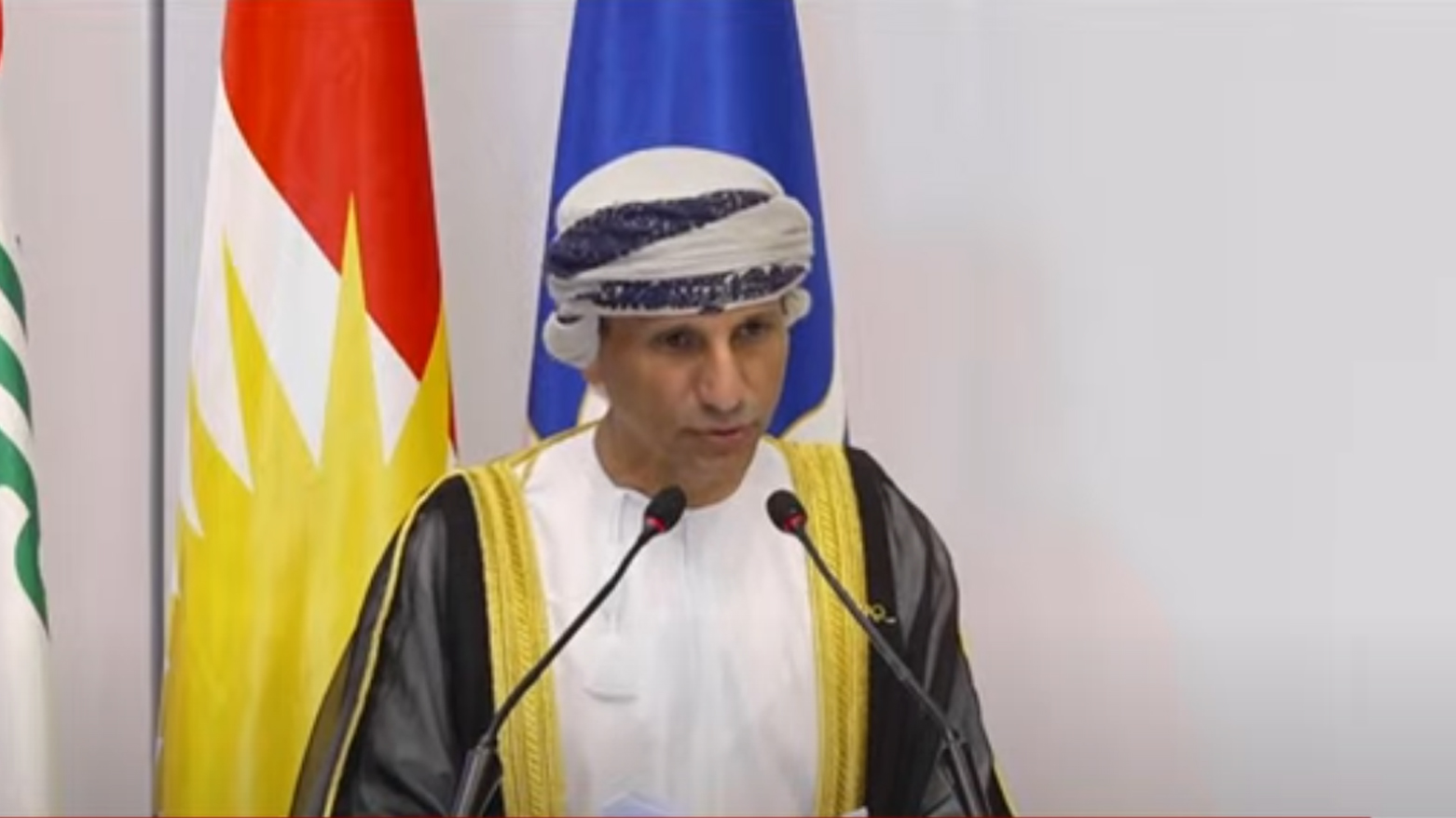UN Envoy to Iraqis: “Resist Division, Preserve National Identity”
“Our message to you Iraqis is to protect yourselves from division and preserve your national identity and environment,” Al-Hassan stated.

By Kamaran Aziz
ERBIL (Kurdistan24) – In a powerful and wide-ranging speech delivered at the ninth Sulaimani Forum on Wednesday, Dr. Mohamed Al-Hassan, the Special Representative of the UN Secretary-General for Iraq, called on the Iraqi people to resist division, preserve their national identity, and protect their environment as a means to achieving a stable and unified country.
“Our message to you Iraqis is to protect yourselves from division and preserve your national identity and environment,” Al-Hassan declared, addressing an audience of political leaders, diplomats, civil society actors, and international officials gathered in Sulaimani.
Al-Hassan, representing UN Secretary-General António Guterres, underscored the importance of regional and national unity in the face of decades of strife. “I hope for productive dialogue between the parties regarding the current and future situation in the Middle East and Iraq,” he said, noting that the moment demands courage, clarity, and the will to overcome cycles of conflict.
He likened the Sulaimani Forum to the World Economic Forum in Davos, describing it as a vital hub of dialogue and diplomacy in the region. “This summit is the Davos of the Middle East,” he proclaimed. “In the Middle East, we have a culture where we discuss the situations we face and live in.”
Al-Hassan identified three fundamental questions that the people of the Middle East are now facing: “Why did this happen? Are there any characteristics that make the Middle East different from other regions of the world? And most importantly, is there any opportunity to change this situation so that the Middle East becomes a stable region?”
He emphasized that the people of the region are weary of war, displacement, and insecurity. “The peoples of the Middle East have grown tired of conflicts, wars, and the hardships they have faced. Now is the time for them to live in stability, like other peoples of the world,” he said.
Expanding his scope, Al-Hassan addressed the underlying causes of regional instability, including foreign interventions, occupation, and the destruction of entire communities. “We are not only talking about the Palestinian cause, but also about the occupation of peoples and interventions in the region, which have led to the destruction and elimination of the people of the Middle East, creating a reality that has forced these peoples to live in misery and accept it out of necessity,” he said. “This has led to a loss of hope for escaping this whirlwind.”
Highlighting the devastating toll of violence, Al-Hassan decried the humanitarian crises unfolding in Iraq, Gaza, and elsewhere. “On social media and television channels, we see Iraqi and Gaza children being killed before the eyes of the whole world. Our women, girls, and some components, especially Yazidis, are sold like commodities by extremist terrorists. This should not be allowed and is unacceptable.”
“These factors contribute to the loss of hope in the Middle East,” he added. “Now is the time for sincere people to come forward to create new hope in this region, so that the great potential that exists among the peoples of the Middle East, especially in Iraq—which is a global cultural place different from other Middle Eastern countries—can be realized despite having faced war and conflict.”
Concluding his speech, Al-Hassan reinforced his call to action. “Our message to you Iraqis is to preserve your national identity and environment, protect yourselves from division, and support your sincere leaders to enter a new phase of stability.”
The Sulaimani Forum, held annually at the American University of Sulaimani since 2013, serves as a premier regional platform for dialogue on peace, governance, and regional cooperation. The 2025 forum, held under the theme “Exploring Regional Peace,” brought together an array of high-profile participants including Iraqi and Kurdistan Region leaders, regional policymakers, and international think tanks such as Chatham House, the Italian Institute for International Affairs, the Century Foundation, and the International Crisis Group. Key issues on the agenda included U.S.-Iran negotiations, the future of Iraq and Syria, regional security, the Gaza and Ukraine conflicts, and efforts to advance Kurdish unity and federal-state relations in Iraq.